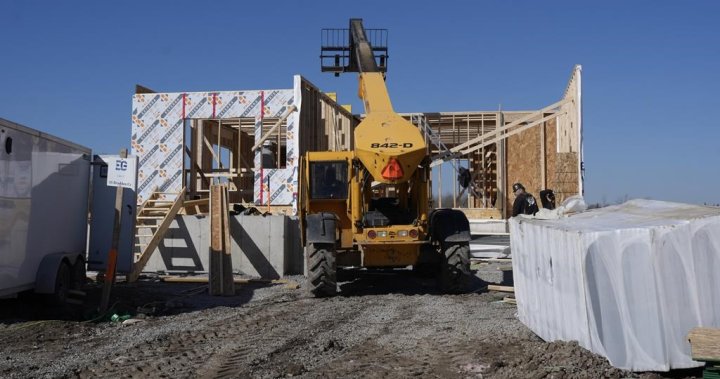It was a moment Zakaria Helles had been dreaming of for 10 months. On June 24, he stood at Jean Lesage airport in Quebec City, surrounded by supporters, waiting to finally hold his wife, Islam, and their five children in his arms again.
“To hug them and embrace them between my arms, making sure that they are alive, they aren’t injured,” Helles says, looking back on the day from the dining room table of his temporary home. “They are still standing and they are with me in Quebec. That was an incredible moment.”
Helles first arrived in Quebec City last August, taking on a visiting professor role in civil and water engineering at Université Laval. His stay was supposed to come to an end in November, but just a month before his planned return home, disaster struck.
“That was a very horrible time and I wouldn’t like to remember it again…. The war started in Gaza at 6 a.m. and I was in Quebec where it was around (midnight). I was sleeping,” Helles recalls. “I woke up in the early morning to hundreds of messages.”
Helles couldn’t believe his eyes and tried to contact his wife immediately, but there was no electricity and no access to phone lines in their home at that point.
“After a while, I could make a (connection) with her, checking that she is alive and the family are alive.”
Helles says his family got to safety but their home in Gaza was completely destroyed, along with everything in it. His wife and children spent the following months travelling on foot, sheltering from place to place, eventually stopping in Rafah.
All the while, Helles tried desperately to find ways of getting them out.
“I lack the ability and capacity to illustrate or even express my feelings in that time,” he says. “Your family, your little kids are trapped in the middle of the combat.”
Breaking news from Canada and around the world
sent to your email, as it happens.
Helles says his children, between the ages of 18 months and 12 years old, had issues accessing food and clean water. But, he says, he always felt his wife was strong and could get the family through anything, leaving him with a sense of hope they’d make it out.
Zakaria Helles’s home was completely destroyed in October 2023, along with all of the family’s belongings.
Courtesy Zakaria Helles
Nora Loreto, a freelance writer and activist in Quebec City, felt a personal duty to help Helles out.
Loreto and her partner have been close friends with Helles for months, meeting each other at rallies and through her partner’s work at the university.
“We would see him pretty regularly. We had him over for Christmas this year, which was fun,” Loreto says.
She and her partner looked into ways of getting Helles’s family out of Rafah, but knew Helles didn’t qualify for the Canadian government’s special program because he was neither a permanent resident nor a Canadian citizen.
“We had always been worried that the official channels to try and get him reunited with his family, whether that was reunited in another country or to bring his family to Canada, would be dead ends,” Loreto says.
Zakaria Helles reunited with his wife and five children at Jean Lesage airport on June 24.
Courtesy Zakaria Helles
According to Immigration, Refugees and Citizenship Canada, 359 people who exited Gaza “on their own” and applied for temporary resident visas have been approved to come to Canada as of June 29; 118 people arrived in the country under the temporary public policy.
As the spring approached, Loreto felt time was running out. It was becoming clear the Rafah border crossing would soon be closed and there would be no escape.
Like many, she was forced to turn to a private Egyptian consulting and tourism company, known as Hala, to get the family out. The company charges about US$5,000 per person to get them on an official evacuee list.
Initially, Loreto set up a crowdfunding page to secure the family’s exit. But she quickly realized they didn’t have time to wait for people to contribute, and she and her partner paid just under $40,000 to get Helles’s children, mother, wife and brother out themselves.
“We were lucky that we did that when we did that because the border was closed shortly thereafter,” Loreto says. “To see the death toll, to see the tens of thousands of children who’ve been killed and the children who’ve been maimed and orphaned … I think most people are going to say, ‘Well, what can I do?’”
Helles and his family are now making up for lost time in Quebec City, and getting ready to move into an apartment later this month with the help of local friends. His work permit has been extended for two years and he has already enrolled himself and his family in francization courses in hopes of calling the region their home permanently.
“I feel like, with my family, we are part of the Quebec family,” he says. “We are part of this very remarkable community.”
© 2024 Global News, a division of Corus Entertainment Inc.





